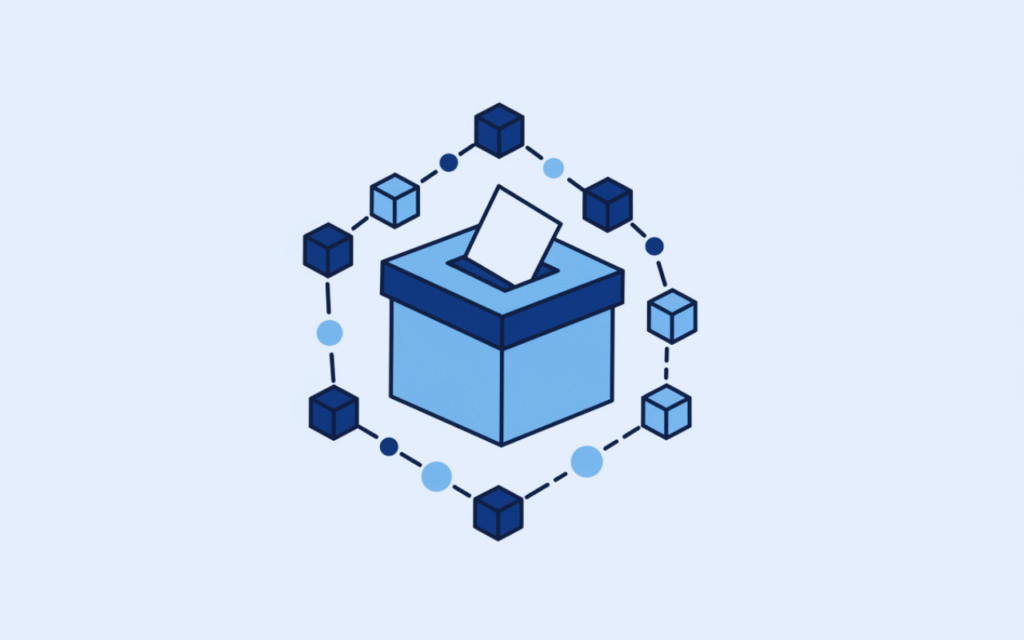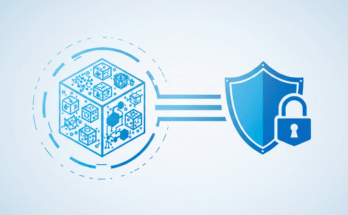Hello, dear readers. Today, we’re diving into a fascinating and increasingly relevant topic, how blockchain technology is transforming digital voting systems. With elections being a cornerstone of democracy, ensuring fairness, transparency, and security is more important than ever. But can blockchain really be the game-changer we need? Let’s explore.

What is Blockchain, and Why Should We Care?
Before we get into the nitty-gritty of digital voting, let’s take a quick refresher on blockchain. At its core, blockchain is a decentralized, secure, and transparent digital ledger. Think of it as a chain of blocks (hence the name), where each block contains information that is verified and virtually tamper-proof. Once data is added to the chain, it’s there for good visible to all participants but impossible to alter without consensus. Sounds pretty cool, right? Now imagine applying this technology to something as vital as voting. That’s where the magic happens.
The Challenges of Traditional Voting Systems
Let’s face it, traditional voting systems whether paper-based or electronic come with their fair share of challenges. Here are just a few:
- Fraud and Tampering: From ballot stuffing to hacking electronic machines, the risk of manipulation is always present.
- Lack of Transparency: Voters often have no way to verify that their vote was counted correctly.
- Accessibility Issues: For many voters, especially those living abroad or with disabilities, casting a ballot can be inconvenient or even impossible.
- High Costs: Running an election is expensive, with costs associated with printing ballots, staffing polling stations, and securing the process.
→ Clearly, there’s room for improvement and blockchain might just be the solution we’ve been waiting for.
How Blockchain Can Revolutionize Voting
Blockchain has some unique features that make it an ideal candidate for modernizing voting systems. Here’s how it could address the challenges we just discussed:
- Enhanced Security: Blockchain’s decentralized nature makes it incredibly difficult for bad actors to tamper with the system. Each vote would be encrypted and stored as a block on the chain, ensuring it cannot be altered or deleted once cast.
- Transparency and Trust: With blockchain, every vote is recorded on a public ledger that anyone can audit. This means voters can verify that their vote was counted without compromising their anonymity a perfect blend of transparency and privacy.
- Accessibility for All: Digital voting powered by blockchain could allow people to vote securely from their smartphones or computers. This would make voting easier for everyone, especially those who face barriers to reaching polling stations.
- Cost Efficiency: By eliminating the need for physical ballots and reducing administrative overhead, blockchain-based voting could significantly cut election costs while maintaining (or even improving) the integrity of the process.
Real-World Examples of Blockchain Voting
You might be wondering, has this been tried before? The answer is yes. Several countries and organizations have already experimented with blockchain-based voting systems:
- Estonia: Known for being a leader in digital innovation, Estonia has implemented blockchain technology in its e-governance systems, including voting.
- West Virginia, USA: In 2018, West Virginia piloted a blockchain voting app for military personnel stationed overseas. The trial was small but showed promising results.
- Sierra Leone: In 2018, Sierra Leone became the first country to use blockchain technology in a national election to help verify results.
→ While these examples are still in their early stages, they offer a glimpse of what the future could hold.
Challenges to Overcome
Of course, no technology is without its hurdles. Blockchain voting faces some challenges that need to be addressed before widespread adoption:
- Scalability: Handling millions (or even billions) of votes on a blockchain network requires significant computational power and infrastructure.
- Digital Divide: Not everyone has access to reliable internet or digital devices, which could exclude some voters.
- Regulatory and Legal Issues: Implementing blockchain voting would require updates to election laws and regulations.
- Public Trust: While blockchain is secure, convincing the public to trust a new system, especially one as critical as voting will take time and education.
The Road Ahead
So, is blockchain the future of voting? It certainly has the potential to revolutionize how we conduct elections, making them more secure, transparent, and accessible. However, like any emerging technology, it needs careful planning, testing, and refinement before it can become mainstream.
What’s exciting is that we’re witnessing the early stages of something truly transformative. As governments and tech innovators continue to collaborate, we may soon see a world where casting your vote from the comfort of your home is not just a dream but a secure reality.
Conclusion
At its heart, democracy thrives on trust and blockchain could play a pivotal role in strengthening that trust in our electoral processes. While challenges remain, the possibilities are endless. Who knows? Maybe in the not-so-distant future, we’ll all be casting our votes on a secure blockchain network.


![[Tesla Stock vs. Bitcoin] Which One Leads the Market in 2025?](https://mineatech.com/wp-content/uploads/2025/06/tesla-stock-vs-bitcoin-which-one-leads-the-market-in-2025-348x215.png)
